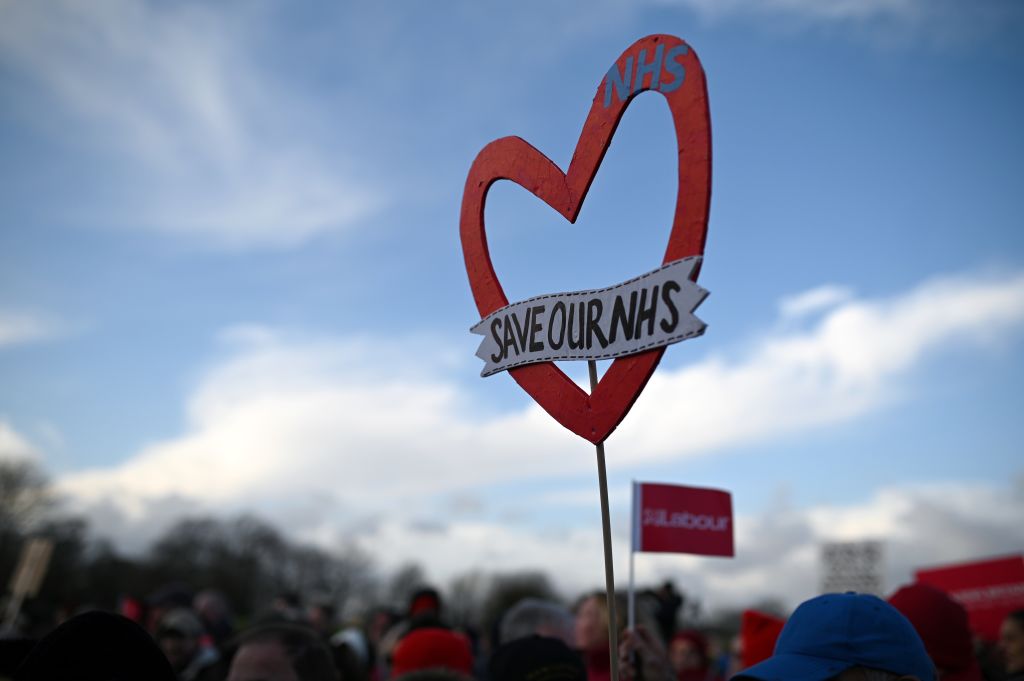On Tuesday, the call went out for 250,000 volunteers to support the NHS in helping vulnerable people ‘stay safe and well at home’ during the coronavirus pandemic. In just one day, more than double that number had come forward to offer their services. So far, much of the discussion around Covid-19 has been dominated by a sneering cynicism of ordinary people. News coverage, amplifying views found all too readily on social media, has provided one long hectoring tirade against those who must shop, get to work, or have simply felt the need to sit in a park or walk on a beach. The 504,303 individuals who immediately volunteered their services challenges the contemptuous labelling of Britain as a nation of #Covidiots.
I’ll confess: I’m not a huge fan of the militaristic rhetoric accompanying the call for a ‘volunteer army’. Talk of ‘rallying the troops’ for the ‘war on coronavirus’ leaves me cold. Boris Johnson may harbour Churchillian fantasies about his own role at this time of national crisis but the reality of the next few weeks, for many of us, will be little more than sitting at home watching Netflix. This is hardly comparable to serving in the trenches or watching your house being reduced to rubble. Likewise, commanding us to ‘Protect Our NHS’ prevents questions about the economic and social costs that doing so may entail.
But the NHS volunteers deserve to be celebrated. Over the coming weeks and months, these people will play a vital role in delivering medicines, driving patients to appointments, bringing them home from hospital, or making regular phone calls to check on people isolating at home. The compassionate instinct people have to care for their fellow citizens, even complete strangers, is life affirming. Despite very real fear of coronavirus, people still have an overwhelming urge to help others.
What’s more remarkable is that people have stepped up to the plate at a time when rates of volunteering have been in free fall. According to the Office for National Statistics, in the decade up to 2015, volunteering levels in the UK declined by 15 per cent. Back in 2005, British citizens volunteered for 2.28 billion hours; by 2015, this had fallen to 1.93 billion hours. As the ONS notes, ‘Over the same period, the population grew by 7.8 per cent, meaning the average number of hours volunteered by each person fell by 21.5.’ In practice, this means scout troops without leaders, hospitals without radio stations, charity shops without assistants and homeless shelters without cooks and cleaners.
There has also been a huge decline in the number of people who know their neighbours. A 2018 study reported that 73 per cent of us don’t know the names of the people who live next door while 68 per cent of us describe our neighbours as ‘strangers’.
Yet despite this, in response to coronavirus, thousands of people have rushed to join online neighbourhood groups arranging for food and other essential provisions to be delivered to local people in need. The ‘Kent Covid-19 Mutual Aid Group’ I belong to currently has well over 6,000 members. One of the first things people did was to distribute leaflets introducing themselves to their neighbours along with phone numbers and offers of help. Some have already gone out of their way to track down and deliver needed supplies, often getting an insight into the daily struggles others face when dealing with a tight budget or a medical problem.
Sadly, this neighbourhood response is likely to be most effective in parts of the country that are most resilient, areas where people have capacity and resources to spare. In communities already struggling with poverty and unemployment, perhaps housing large numbers of elderly residents, or asylum seekers, or other groups in short-term lets, and where not every family has internet access, then local support is likely to be more haphazard. It’s in these areas that the government’s NHS volunteers will be most needed.
It’s important that, as the NHS acknowledges, their newly-recruited volunteer responders do not replace local groups but simply provide an additional service. Not only are local people best placed to know what their neighbours need but it’s important to nurture rather than quell the human instinct to look out for each other. The consequences of not doing this have been made terribly and tragically apparent at care homes in Spain this week, where elderly residents were found abandoned with some dead in their beds.
Right now, it’s hard to imagine what the post-pandemic world will look like. If it is possible for anything positive to come from coronavirus then it might just be that we maintain relationships with our neighbours and forge a new sense of social solidarity with people we might once have written off as strangers.







Comments